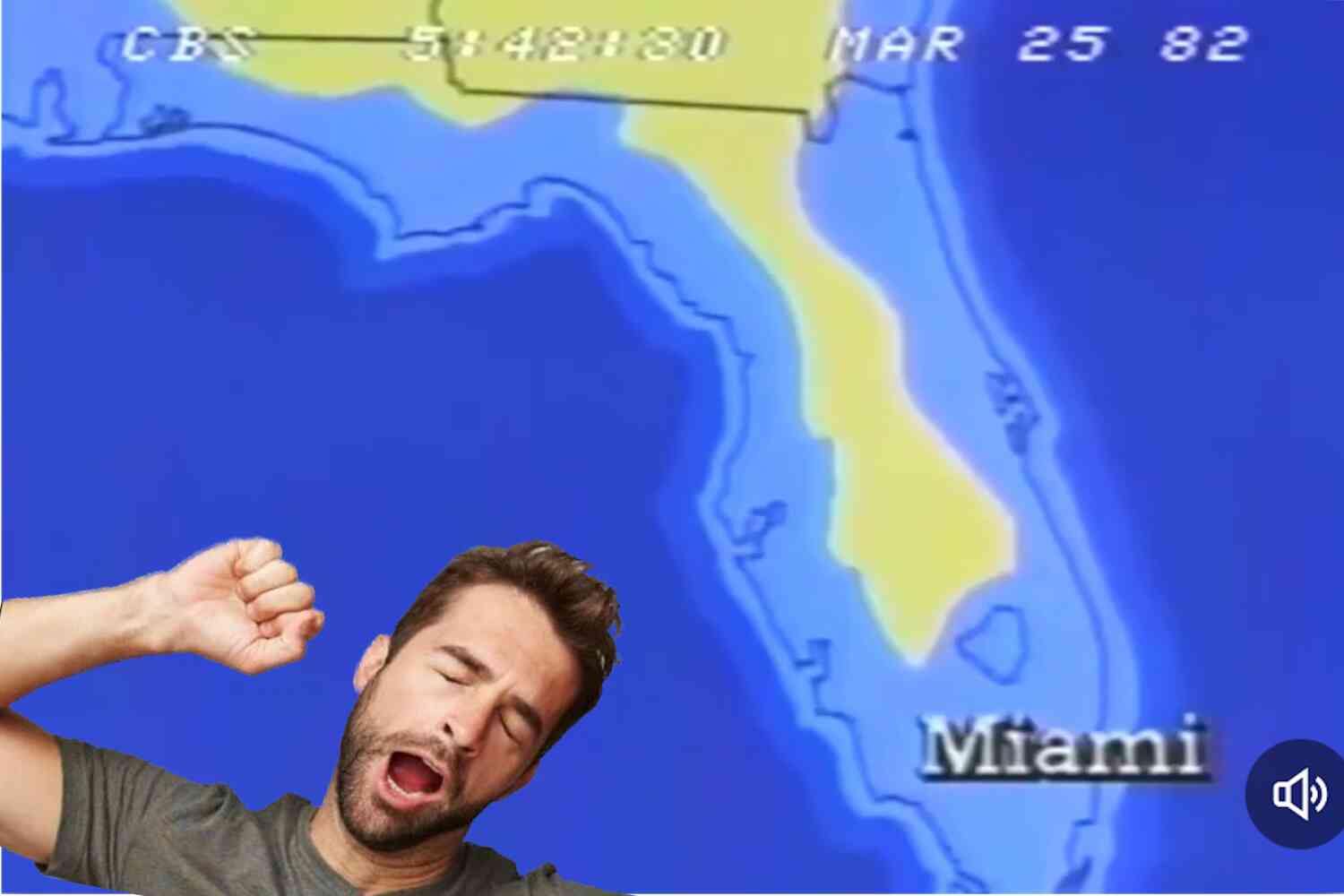My family just got back from a vacation in a part of Florida that, according to a CBS News in 1982, should have been underwater by now.
Not partially flooded, not soggy around the edges, but gone. Buried under the surf. Yet there we were, walking comfortably on dry sand without a snorkel in sight.
Here's the 43-year-old gem from CBS:
In the report, and please stop me if you've heard this before, a solemn Dan Rather warned that if we didn't stop burning those dangerous fossil fuels, a quarter of Florida would soon disappear beneath the sea. My favorite part of these timeless hysterics, always delivered with such grave authority, is the map. You know the one: the coastline erased, Florida reduced to a fragile sandbar.
It was not presented as speculation, but as settled science.
Four decades later, the palm trees are fine, Miami still exists, and beachfront condo prices are obscene. But the apocalypse business has never been better.
The climate movement, having eschewed any rational focus on conservation and stewardship, has become a full-fledged religion of hysteria. Every hurricane, every heat wave, every melting ice cube becomes another sign of the end times, complete with Rather-esque prophets of doom, and indulgences in the form of carbon offsets.
As much as it sounds like a partisan critique given that one party has fully embraced and promoted the panic peddling, it's actually a human one. The tactic is ancient: scare people into compliance. Convince them that unless they do exactly as you say, catastrophe will follow. It's how empires rule, how movements grow, and how modern bureaucracies keep the donations and regulations flowing.
Fear sells. Fear controls.
This goes way beyond just climate alarmism, of course. It's the same principle used in politics, marketing, social media, and even religion when it drifts from grace into guilt. Fear works because it makes people desperate for safety. In such an environment, anyone who authoritatively and believably promises safety will gain power. And when it comes to maintaining or consolidating that power, the lesson of history is unmistakable: anxious people are easier to rule than grounded ones.
Interestingly, there's one group of people that should be impervious to this manipulation. Christianity stands apart because it dismantles the fear economy entirely. There's a reason the most common command that came from the lips of Jesus was "fear not." It's the same reason the early church learned to live unshaken in the face of Roman persecution. Those who have Christ no longer fear the worst thing the world could subject them to.
The Apostle Paul's famous instruction to, "not be anxious about anything, but in every situation, by prayer and petition, with thanksgiving, present your requests to God," isn't a clarion call for burying our heads in the sand. It's about defiance, not denial.
Christian peace doesn't come from ignoring the presence of danger; it comes from acknowledging the presence of Someone greater. We aren't naïve or disengaged, we're just simply unafraid. That's why whether it's melting ice caps or political collapse, believers shouldn't be exasperated by the latest panic. Because while fear might move markets, affect elections, and provoke social movements, it doesn't move heaven.
The more anxious the culture becomes, the more steady and unshaken those who trust Christ should be.
The Kingdom we belong to doesn't tremble at headlines or heat waves.
Our latest video 👇
Disclaimer: The opinions expressed in this article are those of the author and do not necessarily reflect the opinions of Not the Bee or any of its affiliates.









